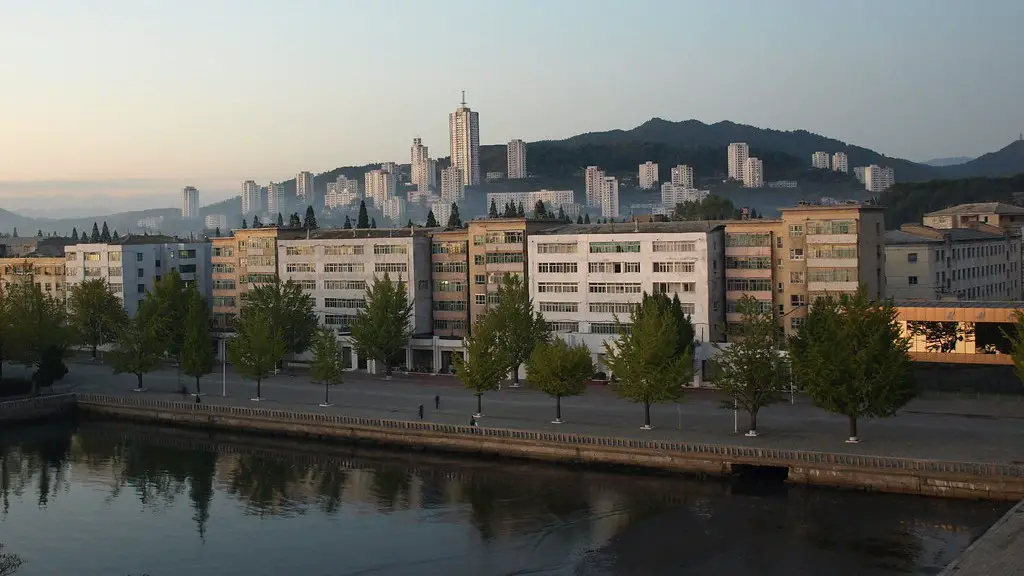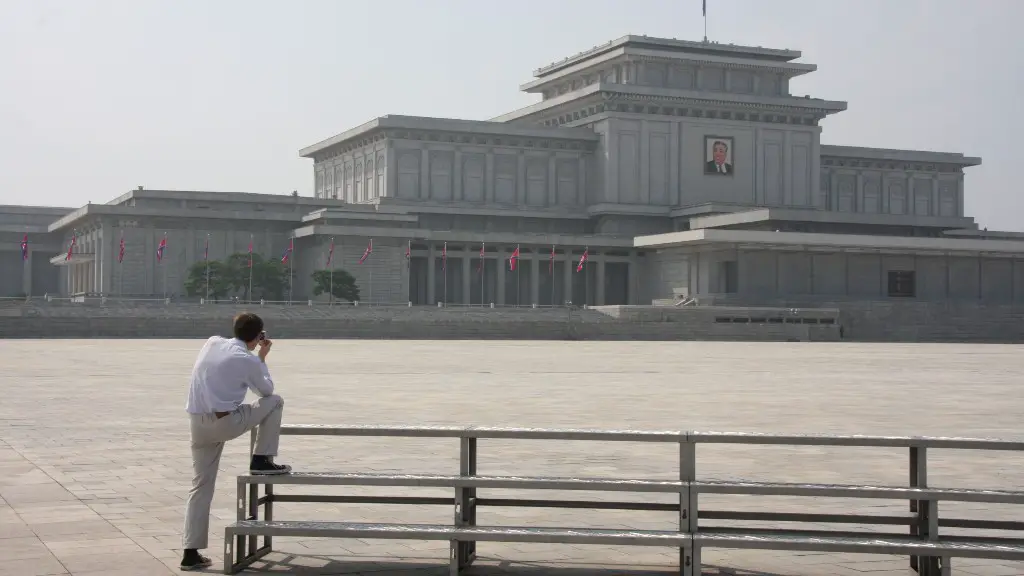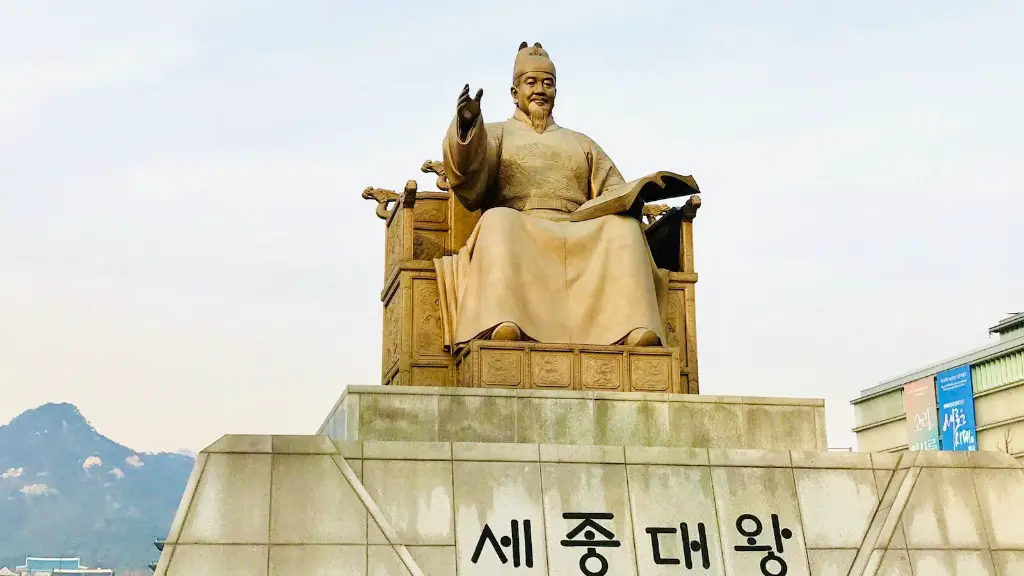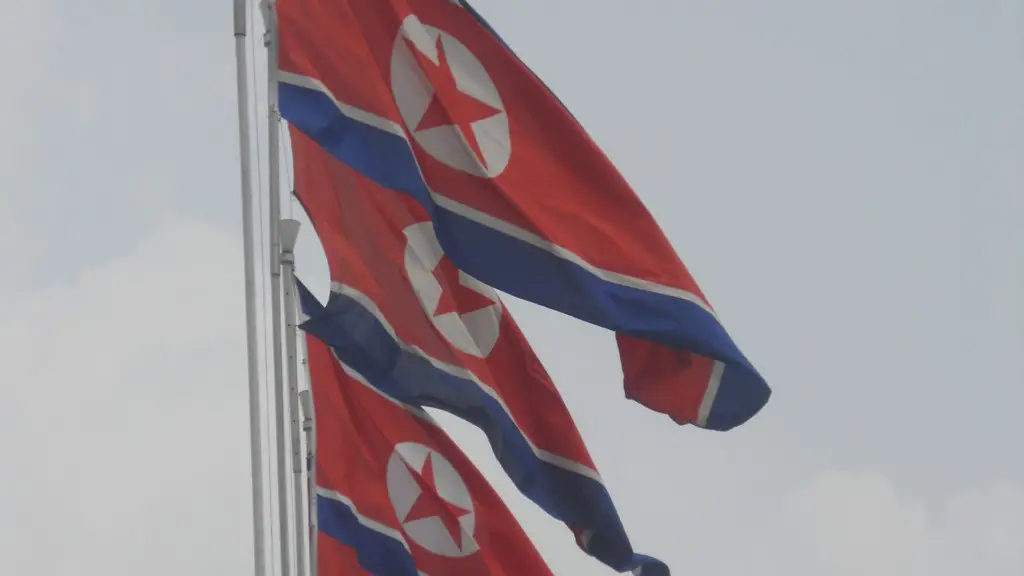North Korea’s Aggressive Postures: The Possibility of Invasions
The relationship between North Korea and the US remains tense, especially with North Korea’s propensity to adopt an aggressive stance against its rivals. North Korea’s leader Kim Jong-un has issued an array of threats to the US, South Korea, and other countries it perceives to be inimical to its interests. In fact, the North has deployed a number of missiles and its nuclear weapons program of late, prompting fears of a reaction from the US.
At this time, there is the possibility of the US invading North Korea, as the Trump Administration has threatened to do. But is this a feasible or desirable action?
One of the factors that makes a possible invasion of North Korea less likely is the fact that the North has nukes. Any move by the US will have to take into account the fact that North Korea has an estimated 10-15 nuclear weapons, as well as an active program of nuclear research and development. It is also possible that North Korea’s missiles are capable of carrying nuclear payloads, which would give it a strategic advantage if a war did break out.
However, while North Korea’s nuclear capabilities make it a formidable force, it is worth noting that North Korea is a weak nation militarily. Its military is no match for the superior US forces, and any attack by the North would be met with a powerful reprisal. North Korea is also technologically backwards, and its outdated weapons systems and strategic assets are no match for the US’s cutting-edge military capabilities.
One must also consider the political ramifications of a US-led invasion of North Korea. The political backlash from the international community would be immense and could lead to South Korea withdrawing from its alliance with the US. Moreover, the economic impact on South Korea and Japan would be heavily felt, further destabilizing the region and exacerbating the already volatile situation.
Another consideration is the human cost. North Korea is a poor and isolated country, and any invasion would likely lead to large-scale civilian casualties. This would only add to the international criticism and further damage the US’s reputation.
In conclusion, while a US-led invasion of North Korea is a possibility, it is far from being a desirable option and instead, there needs to be a diplomatic solution to the tension between the two countries.
The Likely Outcomes of an Invasion
While an invasion of North Korea by the US is an unlikely prospect, it is still worth exploring the long-term impacts of such a move. The first, and probably most obvious, consequence would be the devastating impact on the people of North Korea. The chaotic nature of warfare, combined with the disruption of basic services, would lead to an increase in poverty, disease, and suffering in the country.
Another key outcome of a US invasion of North Korea would be the disruption of the regional balance of power. North Korea has supported dictatorships in the Middle East, and its removal from the international scene could benefit US-favored countries in the region. However, the US would also need to consider the rise of China and Russia in the region, and their potential to use the situation to their own geopolitical advantage.
The economic impacts of an invasion would be immense. North Korea is a heavily sanctioned country, and the US already spends millions of dollars on military preparedness in the region to deter a North Korean attack. This money could be put to much better use; however, an invasion would require additional spending, with no guarantee of success.
Finally, an invasion would also have broader implications for US foreign policy and national security. The wars in Iraq and Afghanistan have demonstrated the limits of US military might, and an invasion of North Korea could further undermine US credibility. Furthermore, the US would have to confront the risk of a nuclear confrontation, as North Korea is believed to have nuclear weapons.
An Alternate Solution
Rather than an invasion of North Korea, the US should pursue a diplomatic solution to the tension between the two countries. The Trump Administration has shown a willingness to talk with Kim Jong-un, and these talks could open the door to a peaceful resolution to the conflict.
The US should also recognize the importance of economic incentives as a way to induce North Korea to cease its belligerent posturing. Sanctions have had little effect on North Korea’s behavior, and thus, an offer of economic aid and assistance could convince North Korea to change its ways.
North Korea’s relationship with China and South Korea is also a key factor to consider. Both countries are heavily invested in the stability of North Korea, and both would be likely to oppose any US-led invasion. Consequently, the US should seek to build a consensus with China and South Korea in order to achieve a peaceful resolution of the tension.
Furthermore, the US should recognize its own role in the conflict. In addition to its aggressive rhetoric, the US could de-escalate the situation by ceasing its military exercises in the region and re-engaging in the diplomatic process with North Korea.
The Opinion of Academic and Political Experts
Academic and political experts have generally been critical of a US-led invasion of North Korea, as it is seen as a dangerous and unnecessary move. According to Dr. Kim Gyehwan, a professor of political science at Seoul National University, a US invasion would be “unnecessary and potentially catastrophic”, as it could trigger a nuclear war with North Korea.
The expert opinion generally agrees that the best option for the US is to pursue a diplomatic solution to the conflict. According to Dr. Kim, “the most viable option is to approach the North Koreans in good faith, while simultaneously reiterating the strength of our military capabilities”.
The opinion of political leaders has been similarly opposed to an invasion of North Korea. The US’s allies in the region, including South Korea, Japan, and Australia, have all expressed their opposition to an invasion, with South Korean President Moon Jae-in recently stating that “the use of force cannot be the answer and should never be an option”.
Even within the US, the opinion is divided on the issue of a US-led invasion of North Korea. With Trump in the White House, there are some that fear the possibility of a potentially devastating war. On the other hand, other political leaders have argued that the US needs to take a hard-line stance with North Korea in order to protect US interests in the region.
US Allies and their Role
US allies, including South Korea and Japan, play an important role in the conflict between the US and North Korea. South Korea, in particular, is heavily invested in the stability of the region, and its economic interests are closely tied to the US. Any decision by the US to invade North Korea would have to take into account South Korea’s interests, and its support or opposition would be a major factor in the US’s decision-making process.
Japan is also a key ally of the US in the region and its interests must also be taken into consideration. While the Japanese government has expressed its opposition to an invasion of North Korea, it has not ruled out the possibility of taking military action should North Korea threaten its security. In this scenario, the Japanese government could find itself in a difficult position, as it would have to weigh its own interests against its commitment to the US and the wider alliance.
In conclusion, while US allies are important players in the conflict, their role is limited, and their influence ultimately depends on the US’s decision. Ultimately, any US-led invasion of North Korea would have to take into consideration the interests of both South Korea and Japan.
North Korea’s Ultimate Demands
North Korea’s ultimate goal is to establish a nuclear-free Korean peninsula. Pyongyang has recently expressed its willingness to negotiate with the US and its allies over the issue of denuclearization, and the US has responded favorably to these talks. However, it is unclear whether North Korea will be willing to make any concessions to the US. The North Korean regime is highly suspicious of US intentions, and it is not clear whether the US will be able to meet the North’s demands.
North Korea has also demanded that the US end its military presence in the region, as well as its military exercises. Furthermore, the North has demanded that the US recognize its legitimacy and lift its sanctions. It is also likely that the North will demand economic aid as part of any agreement.
In conclusion, it is unclear whether North Korea will be willing to make any concessions to the US, or whether the US will be able to meet the North’s demands. It is likely, however, that North Korea will not be willing to denuclearize without significant concessions from the US.
The Benefits of a Diplomatic Solution
A diplomatic solution to the tension between the US and North Korea is in the best interests of both countries, as well as the region as a whole. This would allow for the de-escalation of tensions, which would pave the way for economic development and increased regional stability.
Furthermore, a diplomatic solution would bring about an easing of economic sanctions on North Korea, which would provide much-needed economic relief for the country. This could ultimately lead to the creation of new economic opportunities, such as foreign investment and new jobs, which would benefit both North Korea and its neighbors.
Finally, a diplomatic solution would provide a way forward for the US and North Korea to build a more positive relationship in the future. This could potentially open the door for future cooperation between the two countries on a range of issues, such as the development of nuclear energy and the exchange of information.
In conclusion, a diplomatic solution is the best way forward for the US and North Korea. This would allow for the de-escalation of tensions and pave the way for more positive relationships between both countries in the future.





